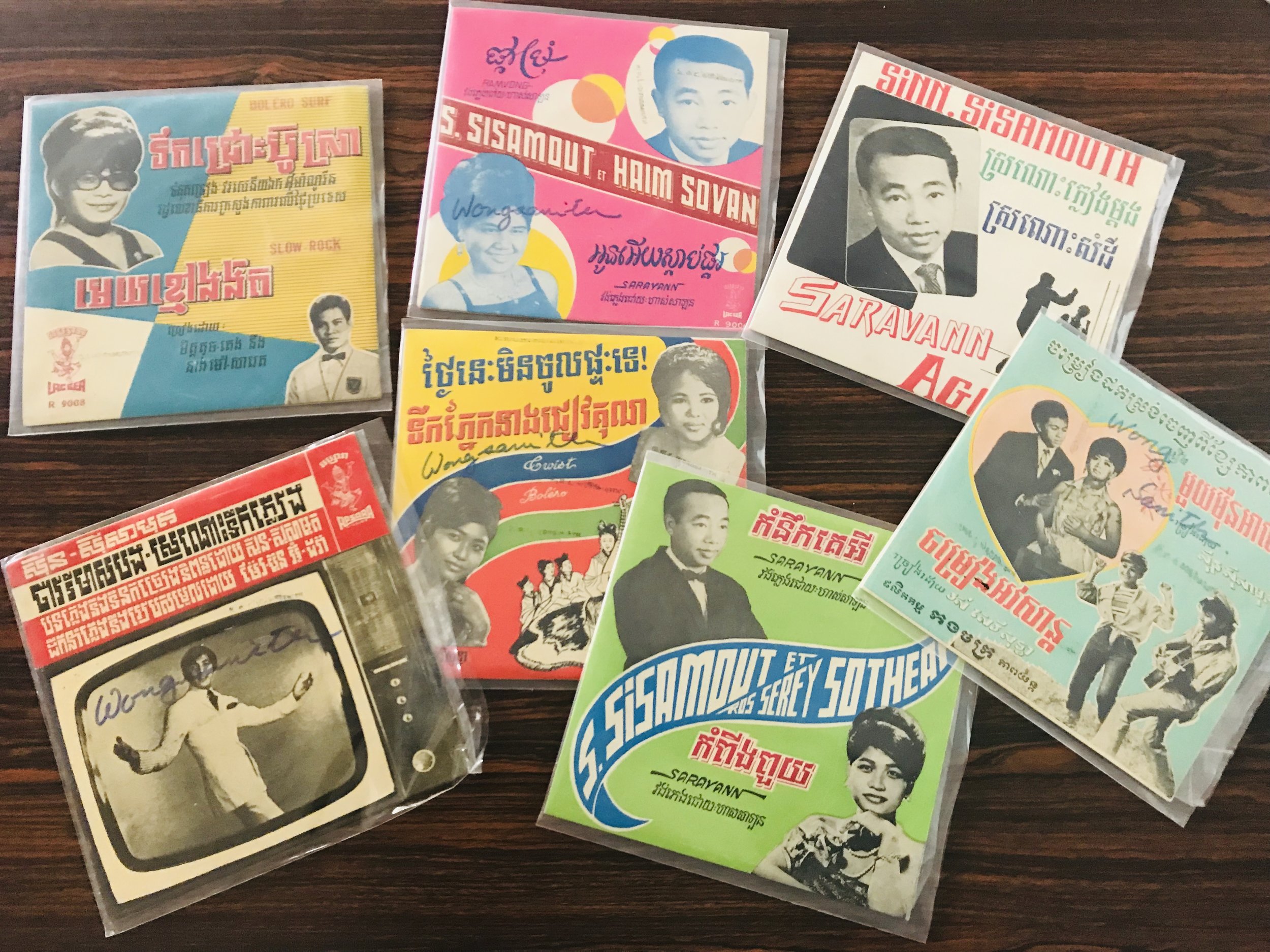By Hailey Barrett
During the Khmer Rouge reign of terror in Cambodia, possessing popular music meant an immediate death sentence, music archivist Nate Hun recently told UC Santa Barbara students and faculty. “People buried their record collections in attempt to avoid execution.”
Now, through increased awareness and global popularity, Cambodian music is experiencing a resurgence for the first time in 40 years.
During its four-year reign of terror from 1975 to 1979, the Khmer Rouge banned music, destroyed recordings, and completely demolished the artistic community. Cambodian culture was silenced and a generation of mentors was suppressed. Parents were mortified as their children were forced to grow up without cultural traditions, in the shadow of trauma.
The Cambodian Vintage Music Archive, co-founded by Hun, a music and film enthusiast, works to recover and digitally restore vinyl recordings of Cambodian popular music from that lost era. Hun presented his music archive at UCSB’s Music Library in an event sponsored by the Center for the Interdisciplinary Study of Music.
Today, there is also an urge to create new music and art among a younger generation of Cambodian Americans. These individuals are often children or grandchildren of survivors who grew up with pieces of Cambodian culture.
Hun’s archive locates collectors in order to preserve digital copies of Cambodian popular music recordings. He had worked as an assistant producer with director John Pirozzi on the 2014 documentary film Don’t think I’ve forgotten: Cambodia’s Lost Rock and Roll.
Hun is also featured in Linda Saphan’s 2016 debut film, Nate From Lowell, MA, which was screened before Hun’s UCSB presentation.
Hun was born and raised in Lowell, Massachusetts, the city with the second largest Cambodian population in the United States. He grew up immersed in Cambodian culture and became extremely interested in pre-Khmer Rouge popular media.
“I first heard Cambodian music when I was just five years old,” he said. “I started collecting anything I could find from the era. I love everything related to prewar Cambodia and I have a special attachment to all things vintage.”
Hun feels he’s performing a public service, restoring a part of the culture that was lost. “Most people in our nation have not heard the original quality of Cambodian music. They are unaware of what it genuinely sounds like and don’t feel obligated to listen,” he said. It has been challenging, he said, because few are unwilling to endure the timely and expensive task of finding and restoring records.
Despite the Khmer Rouge falling out of power in 1979, most collectors continue to hold their collections private. Without evidence or documents to reference, it is extremely difficult to locate Cambodian vintage music. Moreover, vinyl recordings are rarely in circulation, coveted by collectors who don’t wish to share the material they own.
In order to expand his collection, Hun traveled to Cambodia. “During my first visit to Cambodia, I met with several individuals who were greedy with their vinyl collections,” Hun said. “I had to negotiate and bargain in order to get my hands on one.”
Hun is passionate about Cambodian music and brought several of his vinyl recordings with him, to share at UCSB. He played an original song by the renowned Cambodian artist, Ros Sereysothea, who disappeared during the Khmer regime. “The quality of vinyl is just different, it’s nothing like you would hear on a CD or tape,” he said. “It is truly amazing when you can hear every syllable of the song.”
But Hun said his archive had to be digital to maximize sharing it with the public. “We came up with the idea of digitizing records and started the archive in 2009,” said Hun, who initially began the project to share his own vinyl collections online. “The music archive opens the door for other collectors to share their findings with the world,” he said, adding that he has catalogued songs, singers, writers, labels, and dates.
The collection is privately funded. “The biggest challenge we faced in creating the archive was finding funding to search for collectors. Our funding is so limited and everything we’ve done so far has come out of our own pockets,” Hun said.
He has received donations from friends, family members, distant relatives, and local community members. Still, Hun has been able to collect more than 100 vinyl recordings and share them with the world. “It’s an obsession,” he said.
At the Music Library, Hun played a few of his personal vinyls for the audience. The crowd remained silent as they listened to the beat of Cambodian music. Without electronic instruments filling the gaps, one could clearly hear every syllable of the songs.
The atmosphere became lively as audience members tapped their feet and swayed their heads to the beat. Afterwards, he headed south to Long Beach, California, the city with the largest Cambodian population in the United States, to search for more records.
Hailey Barrett is a third year Sociology major. She covered this event for her Journalism for Web and Social Media class.




